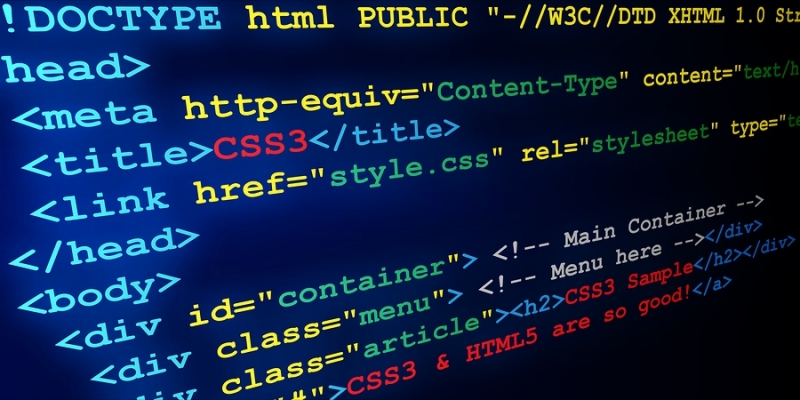Wordpress is great, but not for me?
March 28th 2015

Since 1997 I have been working on websites for clients all over the world. In the past, websites were very much a static thing. You posted some information on your organization and hoped that people would find your site. Today things are dramatically different. People are starting to realize that websites need to be updated regularly to provide visitors with fresh, useful, information and to satisfy the search engines that bring in the visitors. To address this need, programmers all over the world have been working on a variety of Content Management Systems (CMS) that allow website owners to take control over their website content and make changes to their site whenever they feel the need. Today's most popular choice for this is and open-source platform called Wordpress.
The great thing about Wordpress is that anyone can start up a website in minutes. You can choose to sign up with a hosting account from a provider that supports Wordpress, or go through Wordpress.com, pick a template, and start dumping in text and images. You can get free or fee templates to give your site a nice look. CMS systems like Wordpress often have a plethora of plug-ins and third-party applications that you can use for everything from Ecommerce to social media and beyond. This is one of the main reasons for what started out as blogware is now considered one of the most popular website content management systems ever created.
Much like life outside the movies, not everything is all colourful flowers and cuddly kittens. I have seen a lot of problems associated with the use of free content management systems. Some of the most common issues include serious security vulnerabilities, complex bugs, poor website quality, high server loads, problems with updates, unreliable plug-ins, and much more.
 Any computer or website connected to the internet carries some risk of security vulnerabilities. As a hosting provider I have seen dozens of Wordpress sites hacked. The results are quite the opposite for websites that are produced using custom PHP or static HTML. If 500 people contributed code to your site, it is also possible that anyone one of those 500 people may have purposely left code that creates the possibility to “hack” your site. Also, when something has been built and designed to try and be everything to everyone, that also means there are oodles and oodles of code doing totally unnecessary things that create even more vulnerabilities. When I mention this to website owners many of them tell me they're not worried about that, no one would bother hacking their site and if they did they'll just get their wordpress expert to fix it all up. That sounds great, but I can tell you from experience, it isn't that simple. I have seen hacked sites turn into expensive nightmares for their owners and often it was something they could have easily avoided.
Any computer or website connected to the internet carries some risk of security vulnerabilities. As a hosting provider I have seen dozens of Wordpress sites hacked. The results are quite the opposite for websites that are produced using custom PHP or static HTML. If 500 people contributed code to your site, it is also possible that anyone one of those 500 people may have purposely left code that creates the possibility to “hack” your site. Also, when something has been built and designed to try and be everything to everyone, that also means there are oodles and oodles of code doing totally unnecessary things that create even more vulnerabilities. When I mention this to website owners many of them tell me they're not worried about that, no one would bother hacking their site and if they did they'll just get their wordpress expert to fix it all up. That sounds great, but I can tell you from experience, it isn't that simple. I have seen hacked sites turn into expensive nightmares for their owners and often it was something they could have easily avoided.
One of the ways folks try to fight the security issues with Wordpress is to keep the software regularly updated. This is true, it is one of the key ways to reduce the chances of your wordpress site being used by hackers for their own dark purposes. Most of the open source CMS systems seem to have pretty solid “update” features that do a pretty good job of making the update or upgrade process as easy as a click of a button. For a website using a very basic installation and/or one of the default templates, chances are this is going to go amazingly well. Once you start using custom template designs and third-party plug-ins keeping your website up-to-date may become much more of a hassle than you had expected. One of the problems we often see, is that the designer that set up the Wordpress site created a “theme” that doesn't work after a Wordpress update. Another common problem is that a third-party plugin that worked on your previous version no longer works with the latest Wordpress updates. When this happens website owners can get stuck. Sometimes they are forced to go back to the previously working version which means their code is now out of date and may now be open to attacks that would otherwise be fixed. Sometimes website owners are stuck trying to find someone that can go through the code and try and fix whatever is preventing the successful updates, resulting in a lot of unexpected time and expense.
Another area where we find many content management systems fall flat is in their performance. Many website designers and owners don't know a lot about website hosting systems and the effect that their website type can have on their visitors. A basic Wordpress install with a light level of visitor traffic is quite likely to perform acceptably on most hosting platforms. In order to fit the needs of such a vast array of different types of websites, most CMS systems use quite a lot of code that is unnecessary for most websites. They also require access to a database server such as MySQL or PostgreSQL. What this means is that it can take quite a lot of computing resources to display a page for each visitor. More visitors means more resources. I have seen a lot of cases where Wordpress designers are forced to use dozens of different performance optimizer plug-ins to try and get their client's website to handle even modest levels of visitors. Sudden traffic spikes can result in poor loading times and errors. In some cases hosting providers have to require client's with websites that have heavy demands upgrade to more expensive services or risk a shut down of the site. Sometimes it just doesn't make sense to pull out a swiss army knife when all you need is a wrench.
Some people seem to think I hate Wordpress. Granted, I have a lot to say on the subject and much of the time it's about how I think it's the wrong choice for a given client, but that does not mean I hate it. In fact, I think Wordpress is an amazing feat of software development. A lot of high-quality hard work has gone into building a jack of all trades platform used by millions of sites around the world. I don't fault the concept or the development of it at all. When building a website for a client my goal is to provide them with an efficient and effective quality website. What I have found is that it can be very difficult to achieve using a free CMS. At the end of the day, what comes out of any CMS needs to be HTML (Javascript, CSS, etc.) code that works on almost all devices and creates a positive experience with the website visitor. There are dozens and dozens of factors to this such as W3C compliant HTML code, minimized use of Javascript and Cascading Style Sheets, highly effective Responsive Design elements, and Search Engine Optimization considerations. With an off-the-shelf CMS, it can take a lot of extra work to produce a quality end result that does more than just look the part.
By now I hope you're wondering “Why do so many website owners and website designers use Wordpress?” It is a great question. For many web developers it is low-hanging fruit. They can install Wordpress and have something pretty to show to clients for pretty much any budget. For website owners they often like the idea that it's free and that they can log in at any time and make changes to their website without having to pay someone outside of their organization to do the work. For a lot of website owners, it will cost a lot of money to create a nice looking website using a free CMS. The funny thing is, more often than not the CMS is rarely ever used. All those thousands and thousands of lines of code using up valuable server resources every time someone visits your site for no good reason. The fact is, people often use Wordpress because that's what everyone else is using, not because it's the right choice.
 So what is the right choice? That depends on your needs. If you need a website and you've got all the time in the world to study up on things like Search Engine Optimization, Responsive Design, HTML and CSS coding standards, Javascript, Website hosting and Server Administration, Website Design and Content Management then building your own website or using a free CMS like Wordpress might actually be a good fit. If that's not you and you're hiring a website developer to build and manage your website for you then Wordpress probably isn't the right choice. A good website development firm should know their way around all the required technologies, and if they do, why would they need to use a CMS? Anyone with good skills in this area should be able to build and manage a static HTML website efficiently and easily. If they are good at the core skills for most website it is often faster, easier and certainly way more flexible to manage a website that doesn't use a CMS than one that does. It also greatly increases performance while at the same time drastically reducing security risks. In the real world we find that most of our clients simply don't have the time to manage their own website content.
So what is the right choice? That depends on your needs. If you need a website and you've got all the time in the world to study up on things like Search Engine Optimization, Responsive Design, HTML and CSS coding standards, Javascript, Website hosting and Server Administration, Website Design and Content Management then building your own website or using a free CMS like Wordpress might actually be a good fit. If that's not you and you're hiring a website developer to build and manage your website for you then Wordpress probably isn't the right choice. A good website development firm should know their way around all the required technologies, and if they do, why would they need to use a CMS? Anyone with good skills in this area should be able to build and manage a static HTML website efficiently and easily. If they are good at the core skills for most website it is often faster, easier and certainly way more flexible to manage a website that doesn't use a CMS than one that does. It also greatly increases performance while at the same time drastically reducing security risks. In the real world we find that most of our clients simply don't have the time to manage their own website content.
In my experience, if our clients are hiring us to build their website and we do a good job, they will probably come to us when they need changes made. The last thing I want to do is spend all my days learning wordpress on top of all the real important things I need to know to build a high quality, effective website. So folks... I don't hate Wordpress or Joomla or Drupal or whatever else our competitors may be using; I simply don't need it. Oh, and if you're hiring me and my team, neither do you.
We'll take care of you.
Mickael Maddison
SilverServers Inc.
(Find more of our articles about Wordpress here on our blog!)
Replace My Failing WordPress Site


